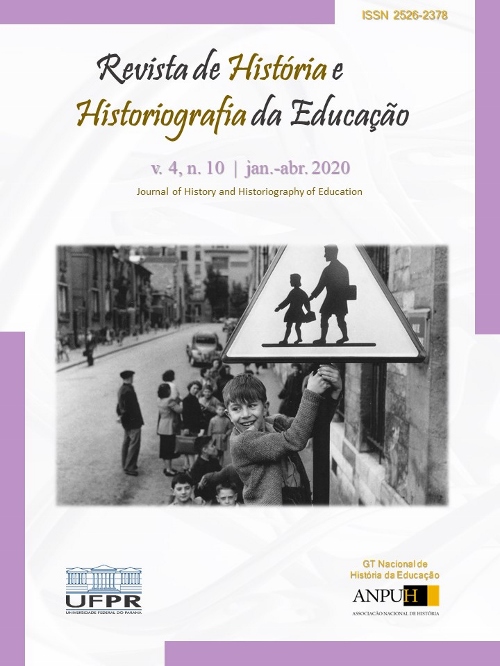As Lettres de Cachet e os Psicodiagnósticos de sujeitos com problemas de aprendizagem de escrita em língua materna / The Lettres de Cachet and the Psychodiagnostics of subjects with problems to learning of writing in maternal language
DOI:
https://doi.org/10.5380/rhhe.v4i10.72656Palabras clave:
Lettres de Cachet, Psicodiagnósticos, Dificuldades de aprendizagem / Lettres de Cachet, Psychodiagnosis, Learning difficultiesResumen
Pretendeu-se refletir sobre as semelhanças entre as Lettres de Cachet e os Psicodiagnósticos (Psicodiagnósticos de sujeitos considerados portadores de dificuldades de aprendizageme produzidos em determinadas circunstâncias), documentos produzidos em contextos distintos e distantes no tempo e no espaço, as prisões reais francesas do século XVIII e as escolas/hospitais no Brasil do século XXI. Tomou-se como base teórica obras de Foucault (1926-1984), que nos permite compreender que ambos os documentos são frutos de tensões engendradas por meios de poder e contrapoder, cujos mecanismos sociais pretendem silenciar as singularidades, justificando e definindo práticas avaliativas produtoras de discursos presentes nas práticas institucionais disciplinares e médicas e no cotidiano das instituições de ensino e hospitalares, determinando valores e crenças presentes na histórica relação existente entre linguagem e poder. Como metodologia de análise adotou-se a proposta do Paradigma Indiciário.
***
We have intended to speculate upon the similarities between the Lettres de Cachet and the Psychodiagnostics (Psychodiagnostics of individuals considered to have learning difficulties and produced in certain circumstances), documents produced in different contexts and distant in time and space, the French royal prisions from the XVIII century and the schools/hospitals in Brazil in the XXI century. The theoretical works of Foucault (1926-1984) were used as a basis in this research, which allows us to comprehend that both documents are results of engendered tensions by power and counterpower means, whose social mechanisms mean to silent the singularities, justifying and defining evaluative practices that produce speeches presented in disciplinary and medic institutional practices and in this educational and hospital institutions’ quotidian, determining values and beliefs that are found in the historical relationship between language and power. As an analytical methodology the indicatorial paradigm purpose was adopted.




